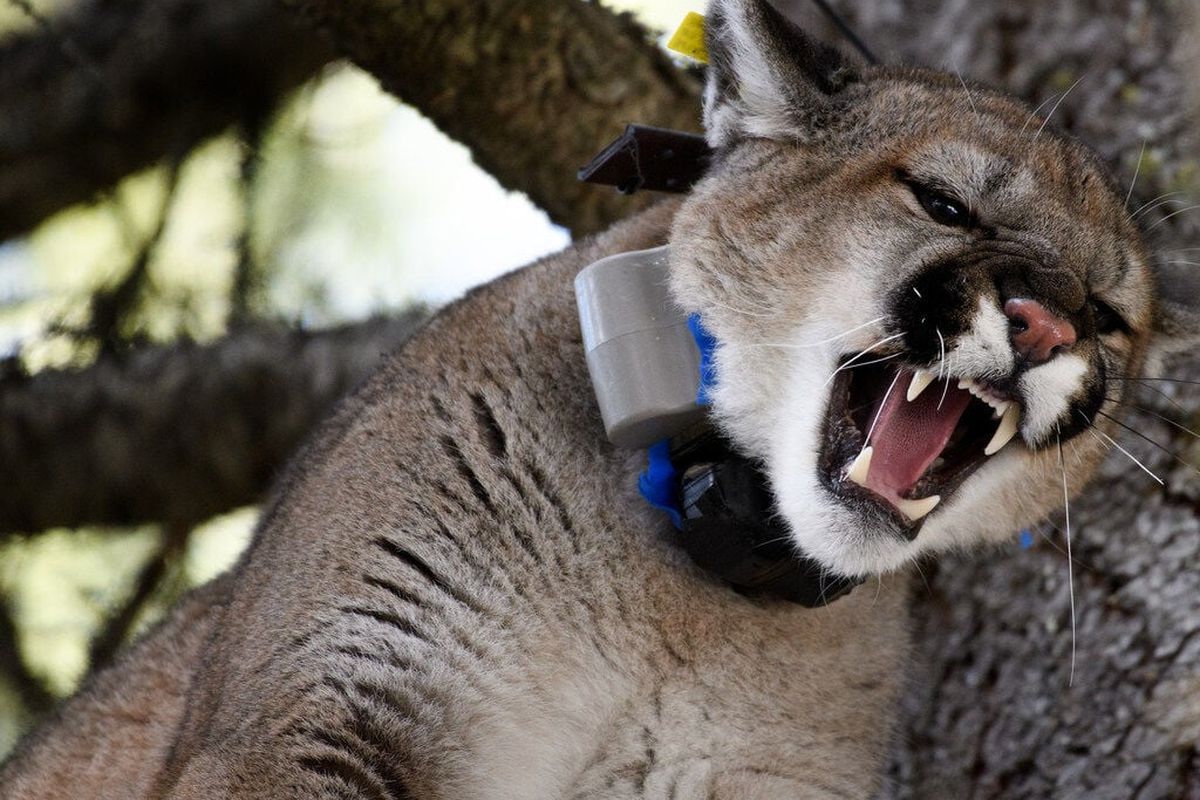Groups seek changes to Washington’s cougar, black bear hunting rules

A coalition of environmental groups is urging Washington to undo some recent changes to cougar and black bear hunting rules, arguing the tweaks have led to too many of the animals being killed.
Washington Wildlife First, the Mountain Lion Foundation, the Center for Biological Diversity and the Humane Society of the United States filed a petition Wednesday asking the Washington Fish and Wildlife Commission to reverse decisions from 2019 and 2020 that expanded opportunities for hunters to kill cougars and black bears.
The changes set the bag limit for black bears at two per hunter statewide, standardized the season length and reconfigured the state’s calculation of cougar densities, which are used to set overall hunting limits. The groups argue those rules have allowed hunters to kill cougars and bears beyond sustainable levels, and that the increase threatens the health of the two species’ populations.
The petition asks the commission to shorten bear hunting season by a month, set a statewide bag limit of one bear and close cougar hunting after area-specific quotas are met.
“It’s shortsighted and unscientific to allow hunters to kill so many of Washington’s bears and cougars,” Collette Adkins of the Center for Biological Diversity said in a news release.
The commission has 60 days to respond. Staci Lehman, a spokesperson for the Washington Department of Fish and Wildlife, which the commission oversees, said the agency has not had time to review the petition in depth, and will look at it more thoroughly in the coming weeks. The commission will confer with WDFW wildlife staff and take it up at a meeting within the 60-day window.
Predator hunting has been a point of controversy for the commission over the past few years, as wildlife advocates have pushed for more protection for animals like bears and cougars while others argue the populations are doing fine, and that hunting is an important management tool.
In 2022, the commission voted to end Washington’s permit-only spring black bear hunting season. The decision was controversial, and commissioners have rejected multiple petitions seeking to restore that season.
Brian Lynn, a spokesperson for the Sportsmen’s Alliance, said in a statement that the petition filed Wednesday is “more agenda-driven hyperbole from animal-rights groups that want to end all hunting in Washington.”
“Each of these groups implores the use of science, but when science supported a spring bear season, they rejected it out of hand so blatantly that the biologist left,” Lynn said. “The WDFW is losing good biologists over the ideologically driven, non-scientific decision making these organizations are pushing.”
In 2019, the commission increased the bear bag limit from one to two bears per hunter in Eastern Washington and made Aug. 1 to Nov. 15 the standard season length statewide. Before the change, rules varied between Washington’s nine bear management units – five had seasons that started Aug. 15 or later, and five had a bag limit of one.
Lengthening the season and increasing the limit resulted in 50% more bears being killed by hunters, peaking in 2022 with hunters killing more than 2,200 bears, according to the petition. The groups argue that’s a problem because black bears face threats from climate change, and that increased hunting could lead to a serious population decline.
In 2020, the commission voted to change how it sets cougar hunting guidelines, which are based on estimated densities of the big cats. The guidelines set a range of allowable cougar kills for individual game management units.
The commission’s change directed WDFW to use the median density instead of the average and count only 2-year-old and older cougars toward the guidelines. The petition says that raised the number of cougars that could be killed each year by more than 50%, and it argues the move ignored science that indicated the populations couldn’t handle that much hunting pressure.
The petition seeks a one-bear limit statewide, and a bear season that runs from Sept. 1 to Nov. 15. For cougars, it calls for returning to setting guidelines based on population estimates and growth rates, and counting cats of all ages toward the rules.
It also argues that the rules – which were made permanent – should be reviewed alongside the rest of Washington’s hunting seasons during the commission’s season-setting process every three years.
The commission has begun working on setting hunting seasons for 2024 to 2026. The panel’s wildlife committee reviewed recommendations from WDFW at a meeting earlier this month, and is scheduled to discuss hunting seasons again when it convenes on Thursday.
WDFW has urged the panel to leave bear and cougar regulations alone until a new game management plan is finished or the commission creates a carnivore hunting policy. But at the wildlife committee meeting earlier this month, some commissioners signaled that they wanted to at least consider reverting the bear and cougar rules to the pre-2019 structure.